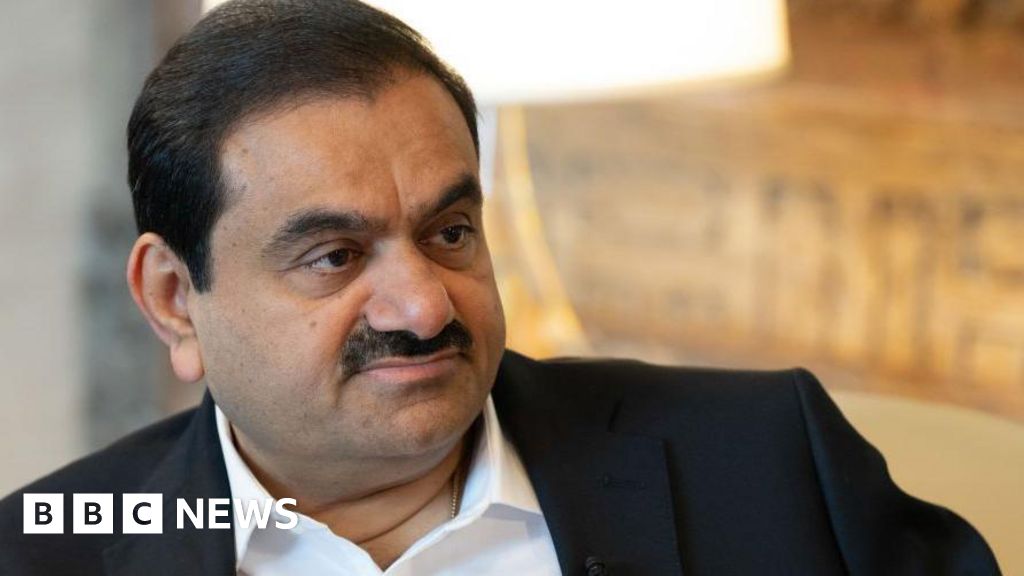 |
|
The recent indictment of Indian billionaire Gautam Adani on fraud charges in the United States has sent shockwaves through the global financial markets and ignited a political firestorm in India. The charges, filed in New York, allege that Adani and other senior executives within the Adani Group orchestrated a $250 million bribery scheme to secure lucrative contracts for Adani Green Energy, his renewable energy company. Prosecutors claim the scheme involved payments to Indian officials, ultimately yielding billions of dollars in profit over two decades. The indictment further alleges that the Adani Group concealed this bribery scheme while raising billions of dollars in loans and bonds from US and international investors, using false and misleading statements about their anti-bribery practices. This action represents a significant escalation in the ongoing scrutiny of the Adani Group, which has been facing accusations of financial irregularities and stock manipulation for nearly two years.
The Adani Group has vehemently denied the allegations, labeling them as "baseless." They have vowed to pursue all available legal avenues to defend themselves. However, the market reacted swiftly and negatively to the news. Shares of Adani Group companies plummeted by more than 10% in the following trading session, resulting in a loss of over $20 billion in market capitalization. Adani Green Energy, the company directly implicated in the bribery scheme, also announced that it would suspend a planned $600 million bond offering. This further underscores the gravity of the situation and the potential for long-term financial repercussions for the Adani Group. The charges represent a substantial setback for Adani, who has been striving to rebuild his reputation and counter the damaging allegations made by US short-seller Hindenburg Research in 2023.
The Hindenburg Research report, published in January 2023, accused the Adani Group of decades of stock manipulation and accounting fraud. Although Adani denied these accusations, the report triggered a significant market sell-off and led to an investigation by India's Securities and Exchange Board of India (SEBI). Hindenburg later expanded their allegations, accusing SEBI's chief, Madhabi Puri Buch, of having links to offshore funds allegedly used by the Adani Group – a claim denied by both Buch and the Adani Group. The ongoing investigations and the current US indictment paint a complex picture of financial impropriety and potential regulatory failures. The US investigation, initiated in 2022, reportedly encountered obstruction, adding another layer of complexity to the case and highlighting the potential for international ramifications.
The US Attorney’s statement emphasized the commitment to eradicating international corruption and protecting investors. The indictment details how Adani allegedly met personally with government officials to advance the bribery scheme. The timing of the indictment, coming just weeks after Donald Trump’s election victory, is also noteworthy. The US Attorney positions are presidential appointments, and Trump's election campaign rhetoric included promises of an overhaul of the US Justice Department. Notably, Adani congratulated Trump on his win last week and pledged a $10 billion investment in the US. This confluence of events further fuels speculation about the political undercurrents impacting the case. The implications of the indictment extend beyond financial markets; they have major political implications within India as well.
The close relationship between Adani and Indian Prime Minister Narendra Modi has been a focal point of criticism from opposition politicians, who allege that Adani has benefited from his ties to the ruling party. These allegations have been consistently denied by Adani. Following the indictment, opposition leader Rahul Gandhi called for Adani's arrest and the removal of SEBI chief Madhabi Puri Buch. This adds to the already intense political debate surrounding the case, with implications for the upcoming Indian elections. The situation is further complicated by the involvement of GQG Partners LLC, a US investment firm that has invested nearly $10 billion in the Adani Group. They have stated that they are "monitoring the charges" and will take "appropriate" action. Moody's Ratings agency has also deemed the indictment a "credit negative" for the Adani Group's firms, raising concerns about their access to capital and governance practices.
The Adani case highlights the challenges of investigating and prosecuting international financial crimes, especially when powerful individuals and intricate financial structures are involved. The interplay between domestic and international regulatory bodies, the political implications, and the potential impact on global markets make this a case with far-reaching consequences. The outcome of this legal battle will not only shape the future of the Adani Group but also have significant implications for corporate governance, investor confidence, and the dynamics of international relations between India and the United States. The long-term effects on the Indian economy, given Adani's extensive business interests, remain to be seen, and the political fallout in India is likely to intensify leading up to crucial elections.
Source: Gautam Adani: US charges Indian billionaire with fraud
